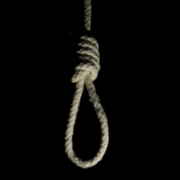 With very few exceptions, I’m opposed to capital punishment. In my book, murder is murder, whether it’s committed by individuals or the state.
With very few exceptions, I’m opposed to capital punishment. In my book, murder is murder, whether it’s committed by individuals or the state.
In this case, the convicted are being used as an example, in hopes that the severity of the punishment will change the behaviour of others, and shift the culture of violence. That’s a good thing. It will very likely save more innocent lives than the cost of the four convicted. This makes it not a moral decision, not an issue of justice for the victims, but an issue of body count mathematics and of cultural shock therapy.
Throughout the world, women don’t have anything resembling equality with men, be it violent rape in India or malicious Internet based harassment in North America. Numerous more gentle efforts seem to improve the situation in one aspect, but not prevent the development of new avenues for discrimination and harassment. We fix mechanisms but changing the culture remains an elusive, distant goal.
In this context, the decision to execute these four young men may very well be the right one. That doesn’t mean it isn’t troubling in many ways. Not only is the use of state sanctioned murder difficult to accept, it is more that this blunt instrument appears to be the only effective tool. This above all demonstrates our inadequacy when it comes to making women an equal part of society. More than sixty years after the wave of post-WWII feminism, and we’re still not past this.
Recent Comments